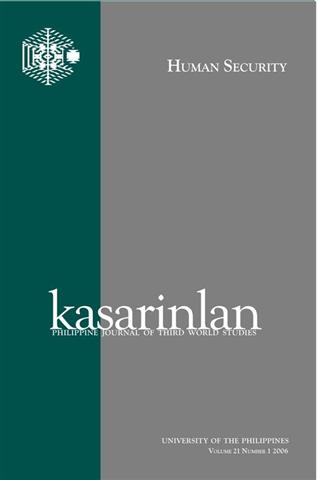Capital Flight and the Hollowing Out of the Philippine Economy in the Neoliberal Regime
Abstract
Capital flight is the movement of capital from a resource-scarce developing country to avoid social controls, measured as net unrecorded capital outflow. Capital flight from the Philippines was USD 16 billion in the 1970s, USD 36 billion in the 1980s, and USD 43 billion in the 1990s. Indeed these figures are significant amounts of lost resources that could have been utilized to generate additional output and jobs. Capital flight from the Philippines followed a revolving-door process—that is, capital inflowswere used to finance the capital outflows. This process became more pronounced with financial liberalization in the 1990s. With these results, we argue that capital flight resulted in the hollowing out of the Philippine economy and, more important, neoliberal policies underpinned the process.
Published
2007-11-15
How to Cite
BEJA JR., Edsel L..
Capital Flight and the Hollowing Out of the Philippine Economy in the Neoliberal Regime.
Kasarinlan: Philippine Journal of Third World Studies, [S.l.], v. 21, n. 1, p. 55-74, nov. 2007.
ISSN 2012-080X.
Available at: <https://journals.upd.edu.ph/index.php/kasarinlan/article/view/418>. Date accessed: 20 sep. 2025.
Section
Articles
Keywords
capital flight; external debt; revolving door; Philippine economy
By submitting a manuscript, the authors agree that the exclusive rights to reproduce and distribute the article have been given to the Third World Studies Center.



